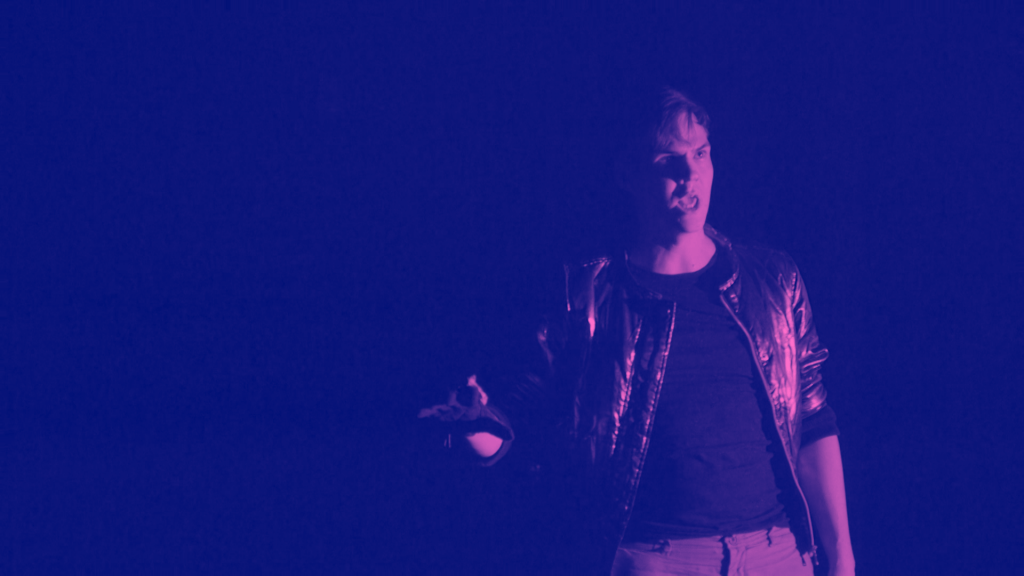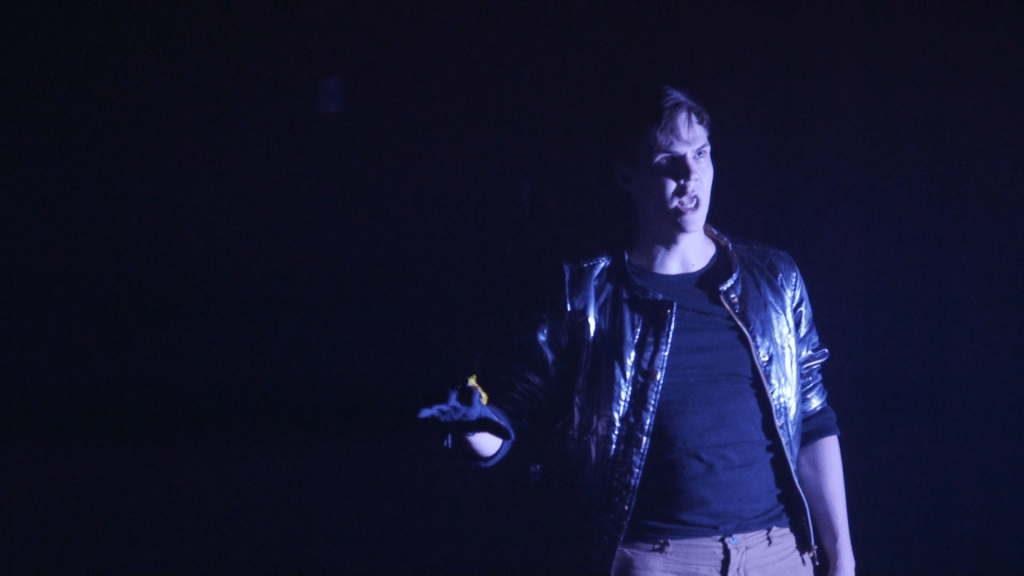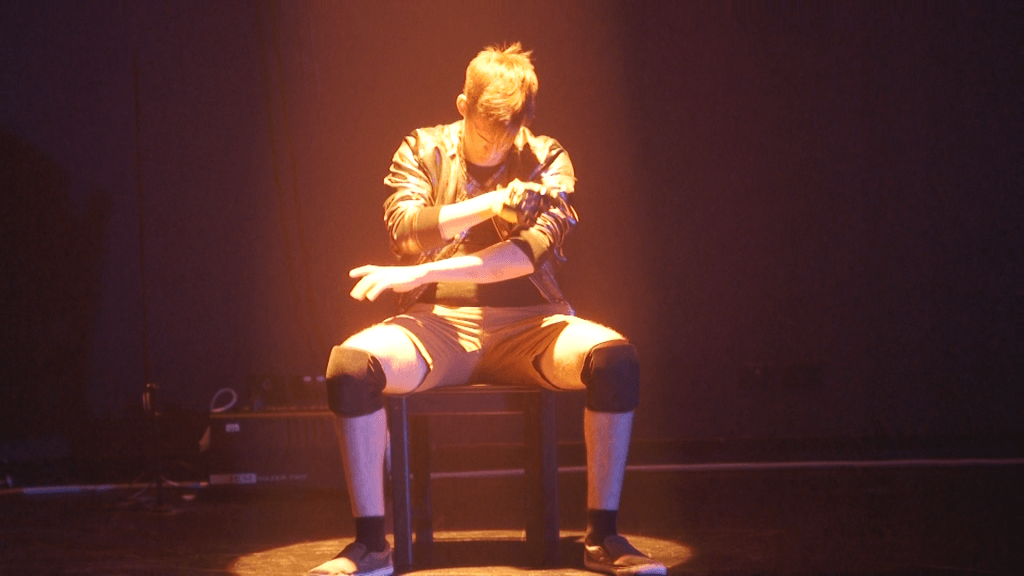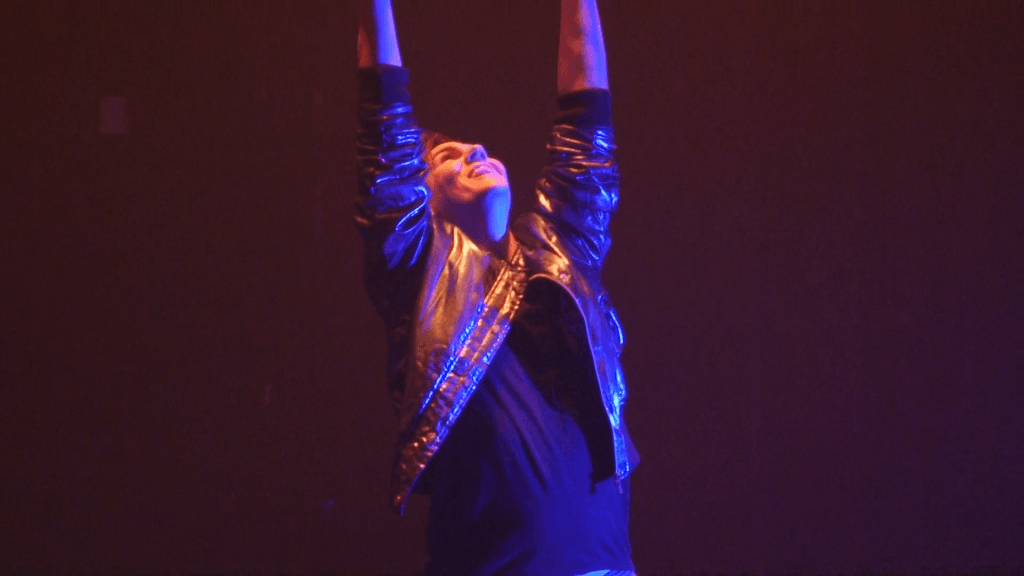
‘Child’s Play’ + ‘Obliteration’ // Brisbane Sci-Fi Theatre Festival
‘Child’s Play’ and ‘Obliteration’ were eye-opening.
We live in a world steadily more ruled by technology, where smartphones contain our lives and screen time is at an all-time high. Humans created technology to make life easier, more fun, more entertaining but when does it stop? Should we have paused a long time ago? It was these questions that the double bill, ‘Child’s Play’ and ‘Obliteration’ questioned in very different ways.
‘Child’s Play’ could be described as a frenzied homage to adolescence. The half-hour narrative followed a boy (Jack Edwards) who discovered a glove of all-hallowed power after being pulled into his television set. Once the glove was found, chaos ensued.
The teen was given the power to do whatever he wanted, dance to his favourite song, make music, play video games, that is until the glove took over. After he agreed to the terms and conditions that “none of us read”, the glove began to control the boy’s every movement, until it eventually killed him.
A film played prior to the performance which appeared to be the origin story of the glove. While this was well filmed and edited, it lacked pace due to the long shots and pregnant pauses in between the action. The clip could have been shortened to maintain audience interest, however, once Edwards took to the stage, energy increased and audiences laughed along to the gags and nostalgic memories.
Edwards committed to his role with much zeal and enthusiasm. His energy was infectious and his physicality made the gloves controlling tendencies obvious. It is clear that the script played to this young actor’s strengths as a physical performer. In particular at the beginning of the performance when Edwards was pulled into the television screen.
Through only sound effects and lighting the actor impressively rolled and fought against himself to the point where the audience could almost feel a force as it pulled him into the television. Edwards’ dance skills were also impressive and made the performance light-hearted and fun but with a darker undertone.
‘Obliteration’ was a distinct change of pace, telling the story of Hisashi Ouchi, a nuclear scientist who sustained the largest amount of radioactive energy any human has ever experienced. Jack Pacey took on the role of a doctor, delivering a lecture to the audience and using Ouchi’s experience as a teaching tool on the ethical complexity of the medical field. The performance was an interesting analysis of what it meant to take research ‘too far’ and when that seeking that information could become ethnically detrimental.
Ouchi worked at the Tokaimura nuclear centre when he was instructed to fill a precipitation tank. The tank was overfilled and reached a critical stage, exposing Ouchi to over three hundred times the level of radiation a human body can sustain. Pacey took audiences through the horrendously gruesome details as Ouchi’s physical form deteriorated.
The narrative was periodically spliced with voice recordings from Ouchi and subtitles were projected onto the back of the theatre. While the text was difficult to read from the audience, this element added an extra layer of interest and a welcomed breather from the gory details.
Pacey was an engaging speaker and did a commendable job for presenting the entire performance solo, including technical jargon and a clear narrative with distinct detail. His confidence helped to engage audiences and he effectively traversed the entire stage, making use of most of the props in the space. Audiences may have been more engaged if there was a break in the monologue to add more theatrical elements, such as lighting changes or a soundscape which supported the narrative being told.
It would be impossible to ignore the conclusion of ‘Obliteration’ which saw Pacey knelt on the floor, amongst a sea of paper cranes, shaving his head. You could hear the audience’s gasp, we all looked at each other questioning what was happening on stage. Was it a wig? What was he doing? And then another gasp as he took the rotating blades of an electric shaver directly through the centre of his hair. What remained was a confused audience and an incredibly committed actor.
While it is always important to assume the intelligence of the audience, this moment may have been more effective had its context been made clearer. Pacey included artistic moments at the beginning and conclusion of his performance, however, these need to be more clearly rooted in the narrative for the audience to make sense of these dramatic sections.
‘Child’s Play’ and ‘Obliteration’ allowed audiences to reflect on the human condition and our thirst for knowledge. Both productions achieved vastly different levels of reflection for audiences. ‘Child’s Play’ was a lighthearted fantasy with a dark twist and ‘Obliteration’ investigated a dire historical event. Both played their role in educating audiences on science and technology that exceeded human advantage, and instead began to work to our detriment. This thought-provoking double bill was just another offering put forward by one of Brisbane’s newest and most exciting theatre festivals.
To make sure you don’t miss out on The Brisbane Sci-Fi Festival next year, visit https://www.scifitheatrefest.com.









